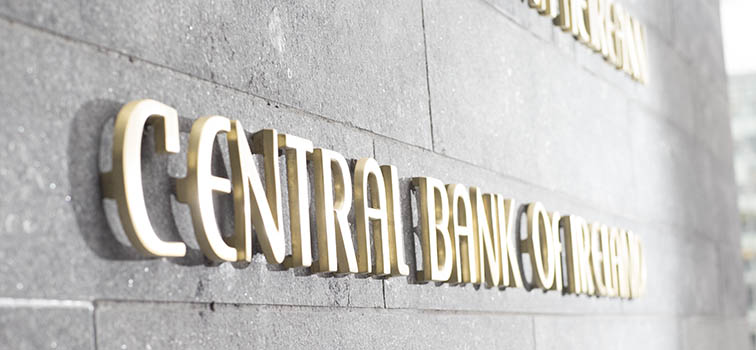Central Bank publishes findings of review into market abuse risks
12 July 2021
Press Release

- The Central Bank’s review of compliance with the Market Abuse Regulation and arrangements to prevent market abuse has identified a need for significant improvements.
- Securities markets participants must take immediate steps to mitigate the market abuse risks identified in the review.
- This is the most comprehensive Central Bank review of this area to date and will inform future supervisory strategy.
The Central Bank today (12 July 2021) published a series of findings and expectations from its industry-wide review of compliance with the Market Abuse Regulation (MAR). This review examined how regulated firms, issuers, and advisors who act on behalf of issuers are meeting their obligations to ensure organisational arrangements are effective in mitigating the risk of market abuse and ensuring market transparency.
MAR promotes market transparency and prohibits market abuse. Compliance with MAR by all relevant market participants is vital to the preservation of market integrity. Unlawful behaviour on financial markets undermines market integrity, impedes transparency, and reduces confidence in securities markets. For investors to trust securities markets, they must feel confident that markets are transparent and free from misconduct such as market abuse.
The Central Bank specified market abuse as a key conduct risk in 2019 and launched the thematic review in 2020 (PDF 716.97KB). The risk of market participants committing market abuse has increased due to factors such as post-Brexit growth, new technologies, and pandemic-related issues. Increased volatility, home working, and transparency concerns further informed the pursuit of a broad, intrusive review.
The review observed some good practices but identified a need for significant improvements. These include:
- Regulated firms must enhance trade surveillance and STOR reporting frameworks in order to ensure they are effective. This includes additional resourcing where needed to support the operation of those frameworks and where businesses increase in scale and complexity.
- Issuers must implement better frameworks to ensure their public disclosures of inside information are made in a timely manner.
- Issuers and their professional advisors must improve the quality both of insider lists and how the operation of those lists is governed. This includes writing to insiders to inform them of their MAR obligations and the consequences of committing market abuse.
- Market participants must improve staff awareness of and training in MAR. In particular, training needs to be more comprehensive and specific to the risk the entity faces in the context of its business activities.
The Central Bank is imposing specific risk mitigation programmes on those market participants where concerns were identified. It has also written to relevant market participants requiring them to critically assess their MAR operations against the published findings and to put in place a time-bound remediation plan; whether or not they received a specific risk mitigation programme from the Central Bank.
Director General Financial Conduct, Derville Rowland, said:
“Misconduct on securities markets undermines transparency and trust among market participants and is detrimental to investor protection. MAR is a critical component in deterring misconduct and identifying market abuse where it occurs. This represents our most comprehensive review of MAR compliance to date, encompassing regulated trading firms, issuers and issuers’ advisors.
“As the scale of securities market activity carried on in and from Ireland increases, so too does the obligation of market participants to ensure their organisational arrangements to identify, mitigate, and manage market abuse risk are effective; having regard to the nature, scale and complexity of their operations.
“The findings published today show a need to raise standards and embed cultures that identify, mitigate, and manage market abuse risk more effectively. This includes carrying out the assessments required by our letters to industry and the mitigation programmes we have imposed on firms where we had specific findings. We expect individual entities to address these requirements comprehensively and without delay. Of particular focus are those regulated firms who fail to appropriately identify their market abuse risk. Risk identification and framework development is not a tick-box exercise.
“The findings will inform our supervisory strategy with the firms we regulate, and we will continue to hold market participants to account to meet their obligations under MAR to ensure a safe and transparent securities market for investors.”
Notes
The Central Bank is the competent authority in Ireland for the Market Abuse Regulation (MAR), Regulation (EU) 596/2014 [pursuant to Regulation 3 of the European Union (Market Abuse) Regulations 2016 [S.I. No. 349 of 2016)].
MAR requires natural and legal persons who professionally receive and transmit orders or execute transactions to implement effective organisational arrangements to detect suspected incidences of market abuse and submit to the Central Bank consequential suspicious transaction and order reports (STORs). These requirements apply to all relevant persons, whether or not they are authorised by the Central Bank or otherwise subject to Central Bank regulation.
MAR requires issuers of equities and other financial instruments to make public, as soon as possible, inside information concerning the Issuer or instrument. Issuers are companies that issue transferable securities such as shares or bonds. MAR applies, inter alia, to issuers with transferable securities listed or traded on Regulated Markets, Multilateral Trading Facilities and Organised Trading Facilities within the EU.
Issuers and entities who act on their behalf or account must maintain insider lists specifying persons with access to the Issuer’s inside information. Entities who act on behalf of issuers include a wide range of professional advisors such as corporate brokers, auditors, public relations firms, accountants and solicitors.
The Central Bank conducts thematic reviews to identify adverse risks, practices and trends, and to facilitate the issuance of further guidance or direction to industry in addition to initial remedial action against non-compliant entities or persons. This thematic review was flagged most recently in the Central Bank’s Securities and Markets Risk Outlook Report (PDF 646.77KB) published in February 2021.